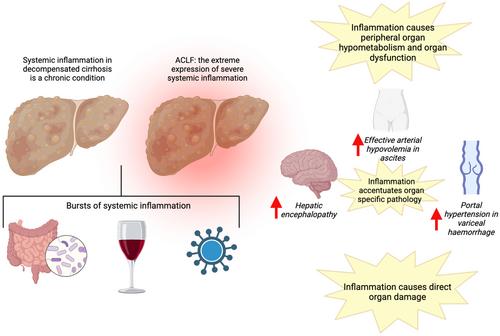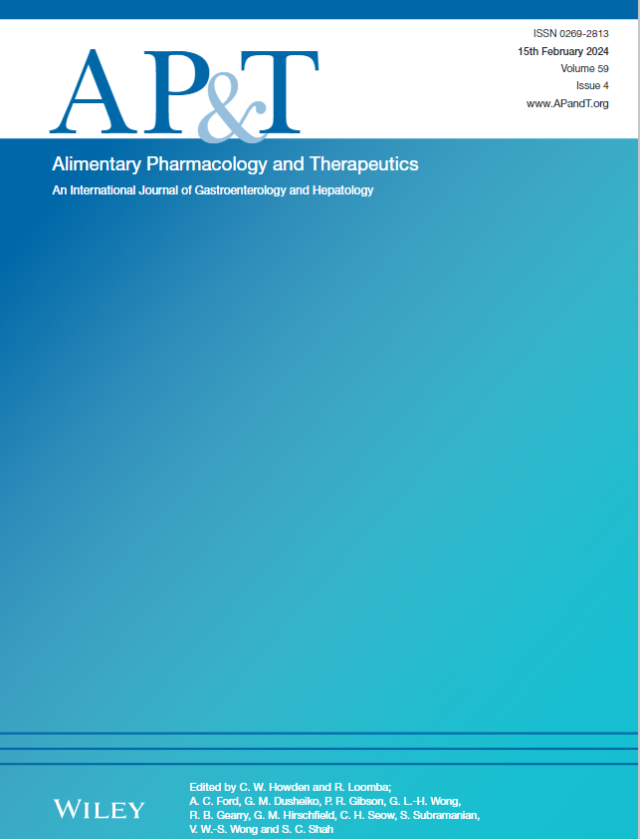Review article: Emerging and current management of acute-on-chronic liver failure
Abstract
Background
Acute-on-chronic liver failure (ACLF) is a clinically and pathophysiologically distinct condition from acutely decompensated cirrhosis and is characterised by systemic inflammation, extrahepatic organ failure, and high short-term mortality.
Aims
To provide a narrative review of the diagnostic criteria, prognosis, epidemiology, and general management principles of ACLF. Four specific interventions that are explored in detail are intravenous albumin, extracorporeal liver assist devices, granulocyte-colony stimulating factor, and liver transplantation.
Methods
We searched PubMed and Cochrane databases for articles published up to July 2023.
Results
Approximately 35% of hospital inpatients with decompensated cirrhosis have ACLF. There is significant heterogeneity in the criteria used to diagnose ACLF; different definitions identify different phenotypes with varying mortality. Criteria established by the European Association for the Study of the Liver were developed in prospective patient cohorts and are, to-date, the most well validated internationally. Systemic haemodynamic instability, renal dysfunction, coagulopathy, neurological dysfunction, and respiratory failure are key considerations when managing ACLF in the intensive care unit. Apart from liver transplantation, there are no accepted evidence-based treatments for ACLF, but several different approaches are under investigation.
Conclusion
The recognition of ACLF as a distinct entity from acutely decompensated cirrhosis has allowed for better patient stratification in clinical settings, facilitating earlier engagement with the intensive care unit and liver transplantation teams. Research priorities over the next decade should focus on exploring novel treatment strategies with a particular focus on which, when, and how patients with ACLF should be treated.


 求助内容:
求助内容: 应助结果提醒方式:
应助结果提醒方式:


